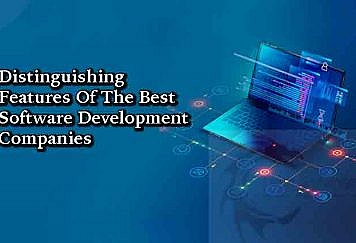CRM isn’t essential for small businesses because it’s too expensive, right? Wrong! Every small business owner who agrees with the preceding notion is bound to fail.
In this article, we’ll go over what a small business CRM is, why it’s a good idea to use one, and how to choose the right CRM for your business.
What is a Small Business CRM?
A small business CRM is a simple customer relationship management system designed to meet the demands of small businesses and solopreneurs. Because small firms don’t require the same level of top-tier, advanced capability as larger companies, small business CRM systems are based on a foundation of simplicity and basic functionality.
Check Out Our Top 7 Tips On Why Small Business Needs CRM
Be Organized
As a small business owner, you may claim that you handle your company’s task management systems, business emails, and calendar system, but you are missing the big picture of your business unless you arrange all of your information in one system. CRM brings all of these activities and more together in one easy-to-maintain and-manage location, allowing you to learn things about your business you didn’t know previously. As a result, knowing the necessity for a CRM for small businesses and being organized will never be a barrier to your company’s success.
Client Management
Another important reason why small businesses require a CRM is that it is a tool that allows you to see more of your client base. It assists small business owners in considering various methods and techniques that are required for developing better plans and, as a result, breaking new ground for long-term profitability.
Track Profitability
CRM is a tool that can make your accountant’s job easier. When you use a CRM like ConvergeHub, you won’t have to worry about keeping track of your billing operations and can instead focus on things like product discounts, customer refunds, and shipping expenses. Small firms benefit from converged CRM platforms because they provide a quick bookkeeping system and accurate financial reporting, which is an important element in the corporate value chain.
Sales Strategy
As a small business owner, the last thing you want to do is lose money by targeting the incorrect customer. Client administration programs, which are at the heart of a CRM, can give small business owners with incredibly useful information about future sales trends, allowing them to tweak their current corporate sales methods and increase income.
Never Lose Your Data
Do you keep all of your client and business information on your laptop? The chances of your laptop being destroyed or stolen are substantial. Small businesses want a CRM system that allows them to abandon notepads, calendars, memo books, and other antiquated data-tracking methods. Small businesses may protect their data with a web-based or SaaS-based CRM system like ConvergeHub. Because your data is stored on the Cloud Server, a Cloud-based CRM ensures data security and offers you with a safeguard against data loss.
Statuses Are Important
Do you know which of your clients are available for a rapid callback and which are not? Knowing which prospects are interested in your products and services and which customers are currently on hold will undoubtedly aid organizations in improving or modifying their sales techniques. At its most basic level, a CRM allows you to view the status of your customers. Small businesses use CRM since it allows you to easily update all of your client related information as well as their current state in your CRM whenever you make a call, contact the customer, or contact your prospects and leads by email or SMS. By charting your client journey, you can avoid following up on cold leads and instead focus on nurturing the ones that are already warm.
You Need Metrics
Do you remember how many successful lead-to-customer conversions you had in the last few weeks or months? Can you give some fast conversion data or describe the most effective technique for your sales staff to contact your customers? Metrics are essential for any company’s success. You may always use Excel formulas in a spreadsheet to figure out these numbers to some extent, but the chances of making mistakes while calculating your result are significant. The majority of people do. CRM software may provide you with real-time metrics on a variety of elements of your business and provide reports tailored to your needs.
What To Look For In A Small Business CRM
The right CRM for your business will help you not only carry out your marketing strategy more smoothly but also acquire insights along the way to adjust and develop it—ultimately assisting you in winning more consumers (and income) while also saving time and money in the long run. Here are the key characteristics of a CRM that can assist you in achieving that goal:
Ease of Use
It’s difficult to avoid complexity in a CRM since it’s by its very nature complex—storing it’s all of your team members’ and campaigns’ interactions and information on each of your contacts in one place. However, complexity does not always imply difficulty in navigating the platform. A excellent CRM is user-friendly and makes things as straightforward as possible. You want a CRM that isn’t an uphill battle all the time, but has a learning curve that straightens out over time.
Advanced Campaign Tracking
It’s critical to be able to see your marketing results at the campaign level rather than just at the general level. This allows you to identify which approaches are most effective in drawing customers and leads to your company, as well as which channels and devices within those campaigns perform best.
Analytics
So you can tell which channels or devices are the most effective in a campaign, but how is the campaign going overall? You can use analytics to identify benchmarks and evaluate if the statistics you’re seeing are up or down from a previous time period or condition. This is critical in a CRM since it allows you to make data-driven decisions and see exactly how much money you’re spending on marketing.
Real-time Data
Results shouldn’t have to be seen at the end of the month or a campaign. A good CRM will allow you to get real-time data so you can acquire insights whenever you need them. This enables you to spot and optimize optimizations during campaigns, take opportunities as they emerge, and stay on pace with your objectives.
Customized Reporting
Advanced campaign tracking, excellent analytics, and real-time data are all important factors to consider when choosing a CRM. Make sure, however, that you may personalize your reports based on timeframes and other factors. This way, rather of adapting your marketing plans to what your CRM can report on, you can keep them the way you want them. Furthermore, being able to compare campaigns to past years, channels, and other factors will allow you to learn, improve, and refine your marketing approach into a finely tuned lead generation machine.
Integration
Are you currently using any additional marketing automation solutions, or are you planning to do so in the near future? Check to see if the CRM is compatible with these technologies and how difficult the integration will be.
Support
Although numbers do not lie, data can be deceiving. For example, you might be concerned about a drop in website traffic. However, if this is accompanied wibyth an increase in conversions, it suggests that while fewer people are visiting your site overall, more qualified visitors who are interested in your business are arriving.
Scalability
Can your CRM’s capabilities and pricing plans easily increase with your business if it does its job and your client database and sales team grow? Is there a flexible downgrade or resource-saving option if you need to dial things back for a length of time or are experiencing a slow period?
Communication Tools
The communication tools are the last but not least of the CRM characteristics to look for. You may receive email notifications about new leads and significant activities, as well as engage with your contacts directly from the CRM, thanks to email integration. This could be a personalized outreach or follow-up email to an individual, or an automated email that is sent after a contact completes a defined action.
There are CRM Tools for Everyone
There may not be a single CRM tool that is ideal for every company. However, there are so many options available that you should be able to discover one that meets your company’s exact requirements.
Ray says that you start by deciding what you want your CRM to do for your company. Then you may study reviews, ask around, and compare features to find the best fit for your particular company.
Author’s bio:
My name is Anastasiia Dyshkant. I’m marketing manager with over two years of experience effectively managing projects. Adept in using digital marketing tools to increase sales and overall company productivity. I’m responsible for managing the promotion and positioning of a brand or the products and services that a company sells.
Follow TechStrange for more Technology, Business and Digital Marketing News.





